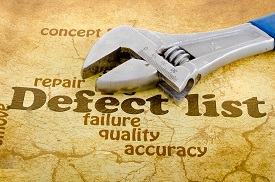 Product vs. Improvement to Real Property: Which Statute of Repose Applies? Depending on the jurisdiction of your loss, the answer to this question may significantly impact the viability your claim. A quick review of the law in South Carolina, North Carolina, and Tennessee demonstrates the varying results across a small sample of jurisdictions in geographical proximity.
Product vs. Improvement to Real Property: Which Statute of Repose Applies? Depending on the jurisdiction of your loss, the answer to this question may significantly impact the viability your claim. A quick review of the law in South Carolina, North Carolina, and Tennessee demonstrates the varying results across a small sample of jurisdictions in geographical proximity.
Tennessee bars claims arising out of improvements to real property four (4) years after substantial completion. Tenn. Code Ann. § 28-3-202. Tennessee’s statute of repose bars products claims brought ten (10) years from the date of purchase of the product.
North Carolina has limited claims arising out of improvements to real property to six (6) years. N.C. Gen. Stat. § 1-50(a)(5)(a). Conversely, claims against manufacturers of defective products may be brought within twelve (12) years of purchase. N.C. Gen. Stat. § 1-46.1
South Carolina’s statute of repose for improvements to real requires that claims be brought within eight (8) years of the date of substantial completion of the project. S.C. Code § 15-3-640. South Carolina, meanwhile, does not have a statute of repose that applies to damages from defective products.
As the statutes of repose provide lengthier time periods (or no limitation in the case of South Carolina) within which to bring claims for damages arising from defective products, a savvy manufacturer may attempt to couch their product as an improvement to real property to obtain the protections of the shorter statutes of repose for improvements to real property.
A look at a few cases across these states reveals how courts’ applications of the statute of repose may vary.
Tennessee
In Cartwright v. Presley, 2007 WL 161042 (Tenn.Ct.App.), plaintiff alleged that a walk-in cooler caused significant water damage to the property. The plaintiff argued that the walk-in cooler was “only an appliance or trade fixture that is readily removable from the premises” and not an improvement to the real property. The trial court found that the claims were barred by the statute of repose for improvements to real property.
On appeal, the Tennessee court found that the cooler was an improvement to real property as it 1) was annexed to the flower shop and not easily moved like a refrigerator would be; 2) was a valuable addition to a property being used as a flower shop; 3) required the expenditure of labor and money to install in the building; and 4) was added to the building to make the building more useful and valuable as a flower shop. As such, plaintiff’s claims related to the walk-in cooler were properly barred by Tennessee’s statute of repose for improvements to real property.
North Carolina
While North Carolina has a similar statue of repose for improvements to real property, North Carolina courts have looked to whom the statutes were intended to protect in interpreting the application of the statute of repose. North Carolina courts have noted that the legislature created the statutes of repose to afford protection to architects, engineers, contractors, and others involved with the design and construction of the building. The statute was not intended to afford protection to remote manufacturers. Forsyth Memorial Hosp. v. Armstrong World Indus., 444 S.E.2d 423 (N.C. 1994) (statute of repose for improvements to real property not applicable if the defendant was just the remote manufacturer of flooring which contained asbestos).
In Henderson v. Park Homes, the North Carolina Court of Appeals found that the statute of repose for products applied to a homeowners claim against the manufacturer of synthetic stucco. 555 S.E.2d 926 (N.C. App. 2001). Even though the synthetic stucco was permanently affixed to the plaintiff’s home, the court concluded that the synthetic stucco was originally purchased for consumption by the installation subcontractor and the product found its way to the job site indirectly through the stream of commerce. Accordingly, the statute of repose for products applied and not the statute of repose for an improvement to real property.
South Carolina
In South Carolina Pipeline Corp. v. Lone Star Steel Company, 546 S.E.2d 654 (SC 2001), the owner of a gas natural pipeline that exploded, resulting in property damage and personal injuries, brought a products liability action against the manufacturer of the pipe. In determining whether the statute of repose for an improvement to real property applied, the court looked to the legislative intent of the statute.
The court noted that legislature intended the statute to apply to additions to the property that have “lengthy useful lives.” As the pipeline 1) made the real property more valuable; 2) involved the investment of labor and money; and 3) was permanently affixed to the property, the Court determined that the gas pipeline had a “lengthy useful life” and was, therefore, an improvement to real property.
When a loss results from a product or fixture within a residential or commercial property, recovery counsel can assist in evaluating whether the particular product that caused the loss is considered an improvement to real property or a product under the applicable statute of repose. As the above examples demonstrate, the results vary by state.





